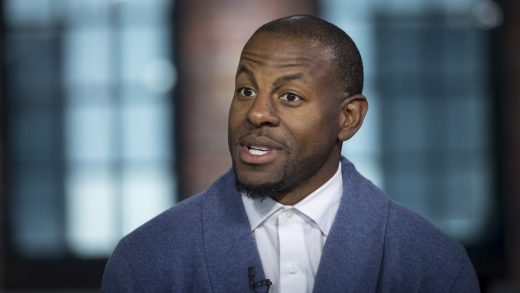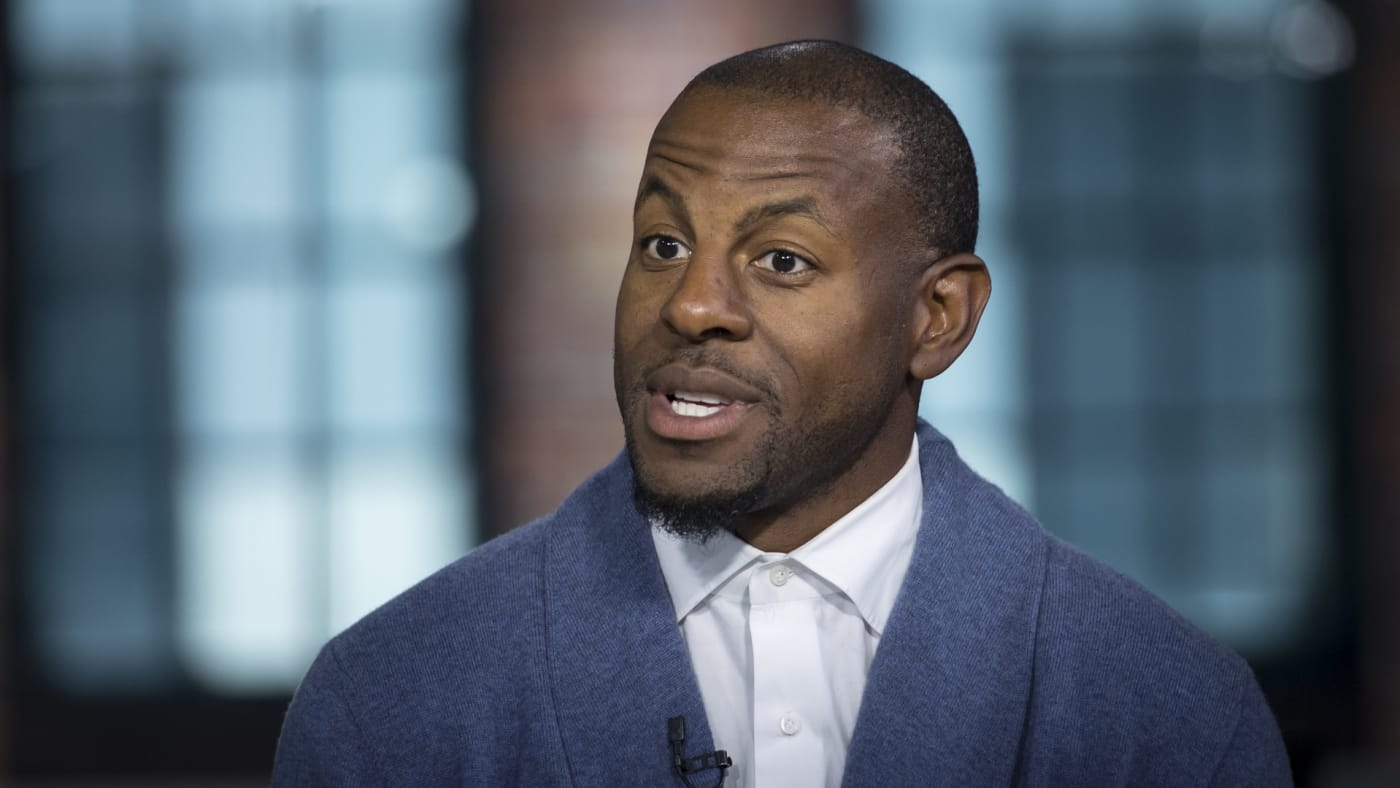NBA star Andre Iguodala is turning more players into tech investors
Long known as one of basketball’s smartest players, and savviest technology investors, Golden State Warriors guard Andre Iguodala is pioneering a new kind of assist–bringing his brotherhood of teammates and fellow athletes along as part of syndicates investing tech companies.
When Iguodala, the 2015 NBA Finals MVP, was taking his initial serious steps as a tech investor several years ago, Andreessen Horowitz partner Jeff Jordan became one of his first mentors, making introductions throughout Silicon Valley and helping him understand how to focus on the companies in which he was best suited to put his money.
That was in 2013. Last year, Iguodala’s reputation as an investor, along with his eagerness to share his expertise with teammates and other athletes, landed him, teammate and two-time NBA MVP Steph Curry, and Iguodala’s business partner Rudy Cline-Thomas on the cover of Bloomberg Businessweek as “The Silicon Valley Warriors.”
That’s why more than a dozen NBA players and other athletes came together at Bloomberg’s San Francisco bureau earlier this week for the second-annual Players Technology Summit–a daylong event put together by Iguodala and Cline-Thomas, among others, featuring panels with CEOs, VCs, athletes, and others, as well as top-tier networking for those ballers interested in investing in tech. The highlight of the summit was a keynote with Kevin Durant, the Warriors superstar and two-time NBA Finals MVP, himself known for his tech investments.
Midway through the day, the 34-year-old Iguodala stepped onto the stage with Jordan for a one-on-one talk titled “From CEO to Investor.” Iguodala played the role of interviewer, peppering Jordan with questions about his progression from tech executive to A-list investor. But just a couple minutes into the conversation, Jordan acknowledged Iguodala’s own progression when asked to identify some players who have gotten tech investing right: “You’re a best practice,” Jordan said of his former protege. “The student and the teacher thing has switched.”
Iguodala’s motivation for educating fellow athletes is to help them have more agency in taking control of their fortunes, while also giving them tools to avoid the kinds of riches-to-rags fates that befell stars like Antoine Walker, who earned more than $100 million in his career and then filed for bankruptcy, or Gilbert Arenas, who blew through all of his nearly $200 million in NBA earnings and endorsements.
“Cut out the Fortnite”
Iguodala wants to grab his youngest teammates’ attention before it’s too late. On stage during this week’s summit’s first panel, he recalled the wisdom he’d recently passed on to a new NBA player who had yet to start thinking much about his financial future. “He said, ‘I’m too young to have to deal with this,’ ” Iguodala said. “I had to be the older brother [and say] ‘It’s on you.’ You have to cut out the Fortnite and cut out the hour browsing on social media. Before you know it, [your career’s] over.’ ”
In the Warriors locker room, Iguodala is known–and sought out–for his sage advice on investing. During a 2016 mixer bringing together Warriors players, VCs, CEOs, and other executives, Curry told me that, for Iguodala, “the normal locker room talk is about positive things in the world of tech. You can pretty much ask him any question, and he’ll have a pretty educated answer.”
.@andre on advice to young players: “It’s on you” to understand biz of sports. “Cut out the Fortnite” or the hour of social media, because before you know it, your career is over. #PlayersTech
— (((DanielTerdiman))) (@GreeterDan) August 14, 2018
Until recently, Iguodala limited his assistance to sharing tips and tricks with teammates and other athletes, and helping to put together events like the Players Tech Summit. But now, he and Cline-Thomas have a new strategy for getting other players involved: They’re cutting them in on the actual investments.
During the summit, the two men explained the motivation behind their new investing syndicates: helping athletes with whom they’ve built relationships get directly involved in their deals. They’re inviting “guys we build close relationships with,” Iguodala says. “Obviously, my teammates [and] guys who don’t have access [to deals], who have an appetite for it, and who have a thirst for the knowledge.”
Cline-Thomas explains the idea is to give the other members of the syndicates a substantial piece of the action. “Let’s say [we] invest in a company and they give us an allocation of $10,” he says. “Rather than us taking the whole $10, we’re splitting it up from amongst other athletes, so we’d do $2, and the other guys can do $8.”
Obviously, that was a theoretical example, and the real ones involve numbers with a lot more zeroes at the end. Cline-Thomas and Iguodala didn’t share any actual investment amounts, but did say that two of the first syndicate deals were investments in the sneaker company GOAT–which New York Knicks superstar Kristaps Porzingis was in on–and in sports-prediction company WinView–along with Dallas Mavericks star Harrison Barnes.
Extending the ecosystem
Iguodala and Cline-Thomas see the syndicates as a natural extension of the ecosystem they’ve built around the players tech summits, the 2016 mixer, and other efforts they’ve made to boost players’ financial literacy.
And part of that is the fact that they’re not simply saying which companies they want to fund and then taking players’s money. Rather, those players who take part in the syndicates are invited to help vet the deals, come to meetings with CEOs, and speak directly with the executives. “They’re not just throwing money at us,” Cline-Thomas says. “It’s not a fund.”
Iguodala says that the syndicate model is particularly empowering for African-American players who traditionally haven’t had access to the kind of deal flow that permeates Silicon Valley. “At the end of the day,” Cline-Thomas says, “I think that Andre’s created a platform to where it’s not about him. It’s a contingent of other athletes, and I think that’s much stronger than any other proposition, especially when it comes to adding value to a lot of these companies. And that’s what he’s continually building on.”
(65)



